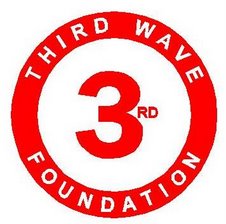As I wind down from a very long and hot day of doing water ceremony and danza at the Forum, I’m finally able to be in a space to sit quietly, coffee and chocolate by my side, and reflect on the many experiences I’ve had, and the many people I’ve met, since leaving San Antonio last Sunday.
Our delegation came as part of the “People’s Freedom Caravan”, which took off from Albuquerque, New Mexico, going through San Antonio, Houston, Lake Charles, New Orleans, Jackson, Selma, and finally arriving in Atlanta just in time to join the opening march of the USSF. In each of the cities our caravan stopped, we had the honor of meeting amazing, dedicated, warm people who are working hard to make real their vision of justice and dignity for their communities.
I think the two places that had the deepest impact on me were New Orleans and Jackson, Mississippi. I had never been to New Orleans before, and what I saw there, especially in the Lower 9th Ward, was a mixture of both pain and sadness, but also an intense tenacity for life. We saw the depth of the impact of the flood in the Lower 9th, acres and acres of land where houses used to be, the concrete slabs of the foundation all that now remains. After driving through the neighborhood and seeing the empty lots, empty houses, we visited an organization called NENA which is trying to tend to the needs of the residents. On one wall, they have a map of the neighborhood on which they identify with green dots the people they’ve contacted who have expressed the desire to keep their land and fix or rebuild their homes. As much pain as is present is matched with a deep commitment to the neighborhood and the desire of residents to just Come Back Home.
In Jackson, Mississippi, we met with Southern Echo and went on a Civil Rights Movement Tour of the city. I was inspired by the strength of the residents in keeping the stories of the Civil Rights Era alive, keeping that history alive, sharing it with us, the younger generation so that we may someday share it with generations to come, so those names will not be forgotten, so those deaths will not go unpunished. This is also something that we use in Mexico and all over Latin America, naming the dead, naming the disappeared, giving them a face and a story so that they and what happened to them is not forgotten, so that it will never be repeated again.
Subscribe to:
Post Comments (Atom)

No comments:
Post a Comment